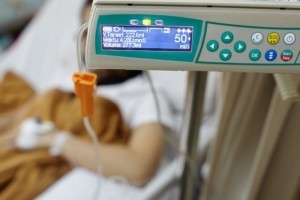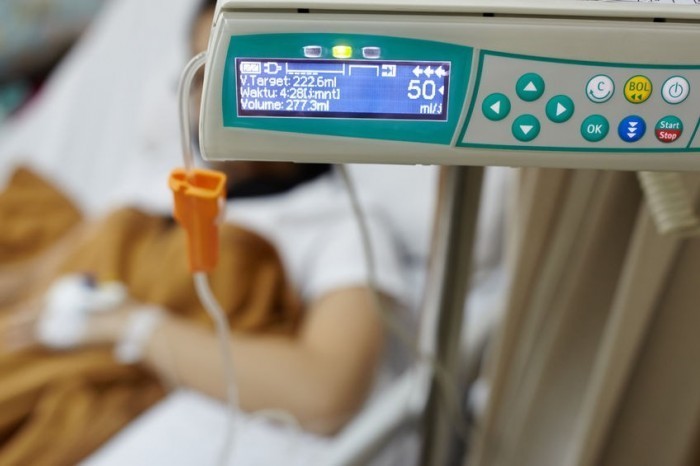BOSTON, MA – As much as they don’t want to admit it, health care professionals have succumbed to the reality of patient satisfaction surveys and the fact they are here to stay, which partially explains why Boston area hospitals will soon see the appearance of brand-new IV pumps fitted with their own WiFi hotspots.

“The truth of the matter is what WiFi signals within any hospital are poor and that reflects in Press Ganey scores, in fact, it’s the second major source of dissatisfaction after pain management,” said Massachusetts Colonel Hospital (MCH) administrator Lynn First.
First recalls a particularly memorable survey where a patient appreciated being brought back from the brink of death, but didn’t appreciate how she was without internet the whole time, a form of pain and suffering in that patient’s opinion.
“Short of giving patients Dilaudid at will,” First explained, “this is the next best thing we can do.”
Many health care professionals initially opposed this move, stating it would increase length of stay (LOS) as it gives another reason for a patient to avoid hospital discharge, something that is increasingly becoming one of the hardest things to pull off in modern healthcare. To help obviate patient attachment to a strong WiFi signal, MCH nurses have worked with manufacturers Alaris and Baxter to successfully create IV pumps that cease WiFi connectivity not only when the patient’s arm is bent, but also when the call light is pressed or a patient has received a narcotic within the past 24 hours.
“Rest assured, both manufacturers have stated these next-generation pumps will still play Michael Bolton whenever the patient’s arm is bent in addition to the above measures,” explained MCH Chief Nursing Officer Aimee Price. “In fact, we’ve asked Alaris and Baxter to alternate Michael Bolton with some occasional Nickelback.”
The IV-WiFi pumps are expected to roll out on November 1.







